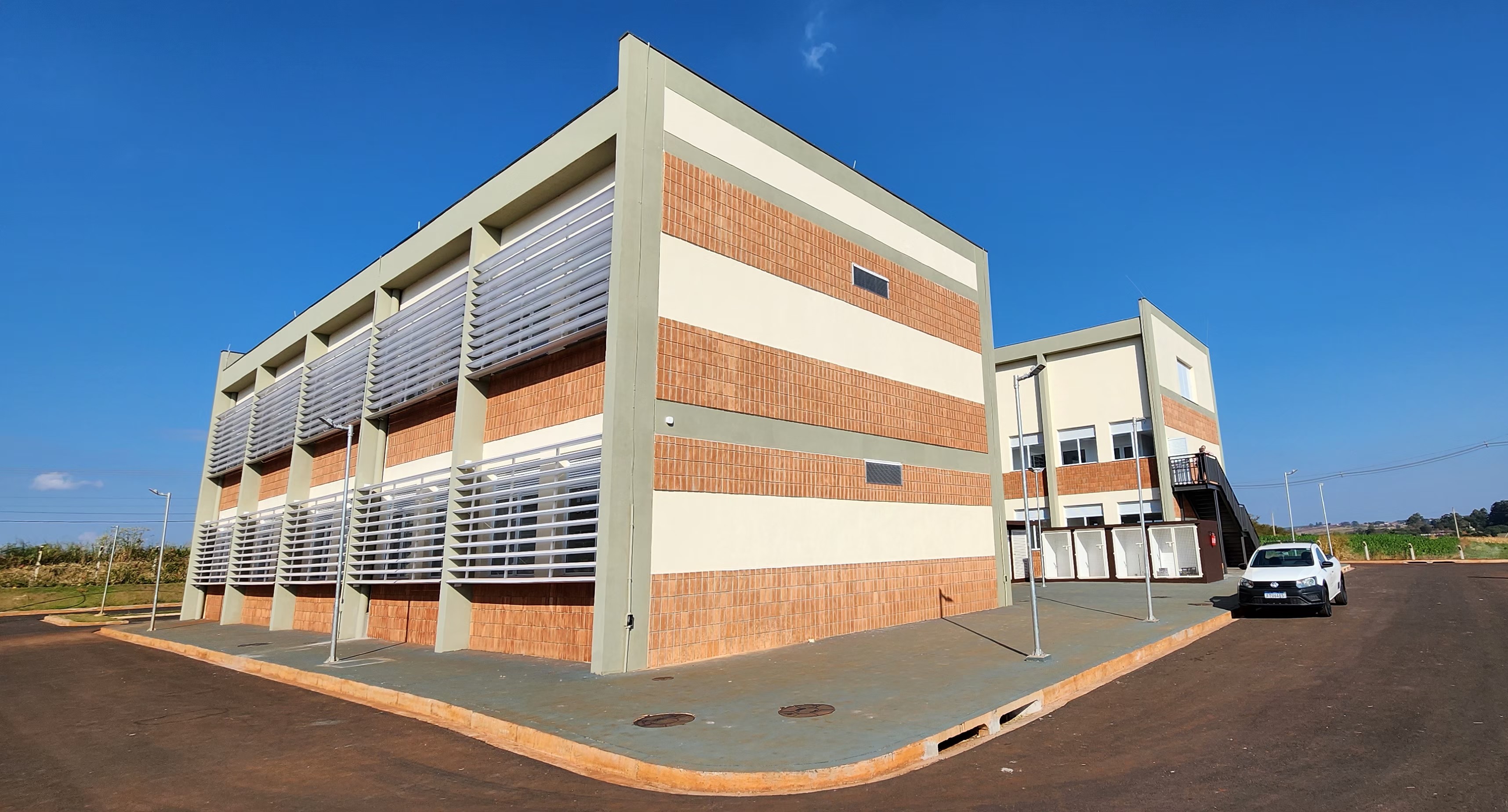


The factory is scheduled to go live in 2025 (photo: Karina Toledo/Agência FAPESP)
Published on 07/01/2024
By Karina Toledo | Agência FAPESP – A factory with the infrastructure needed to produce pilot batches of pharmaceuticals for use in clinical trials was unveiled on June 13 on the Botucatu campus of São Paulo State University (UNESP). Built with funding from the Brazilian health ministry and the university, it will focus on biologics – medical drugs produced using biotechnology and biological sources – especially monoclonal antibodies, which are proteins similar to those secreted by human immune cells but produced in a laboratory to help diagnose and treat various diseases.
Part of UNESP’s Center for Studies of Venom and Venomous Animals (CEVAP), the plant will produce inputs for research conducted at the Center for Translational Science and Development of Biopharmaceuticals, which is supported by FAPESP under the aegis of its Science for Development Center (CCD) Program (read more at: agencia.fapesp.br/41208).
In addition, it will act as a contract development and manufacturing organization (CDMO), performing outsourced medical drug development and production services for pharmaceutical companies, biotechs and other research institutions to lower costs and risks for these organizations, increase the flexibility and scalability of production, and assure the quality and conformity of pilot batches of experimental drugs.
“This will be Brazil’s first CDMO and the first Latin American center dedicated to the production of biologics for clinical research,” Rui Seabra Ferreira Júnior, CEVAP’s executive director, told Agência FAPESP.
Between 100 and 120 patents on biologics are about to expire in the next few years, he noted, adding that the possibility of developing biosimilars represents a strategic opportunity for Brazil. “Our focus will be meeting the priorities of the SUS [Sistema Único de Saúde, Brazil’s public health network]. The importance of increasing Brazil’s capacity to develop and produce vaccines and other biologics became evident during the COVID-19 pandemic.”
According to Benedito Barraviera, a professor at the Botucatu Medical School who founded CEVAP 30 years ago and is now the head of FAPESP’s new CCD, its chief mission will be to accelerate the process of developing and commercializing novel biologics. The CEVAP group became aware of the need for a facility of this kind during the three decades spent prospecting for molecules derived from animal toxins that could give rise to biological medications.
Two products developed during this period – a fibrin sealant derived from buffalo blood and snake venom for use as a surgical adhesive, and an antivenom against the sting of Apis mellifera bees – are currently awaiting the investment required for Phase 3 clinical trials. Once they complete this stage, the researchers can apply for registration of the products by ANVISA, the federal agency responsible for regulating drugs and clinical practices.
“These products have been under development for some 30 years at a public university and have succeeded in surviving ‘death valley’ [a phase of clinical research when most projects die without reaching the market]. Bringing them to market and society will be a major win for Brazilian science,” Barraviera said.
Rui Seabra Ferreira Júnior presenting the new factory and its capabilities to our reporter (photo: Karina Toledo/Agência FAPESP)
Training
The new factory will have a space reserved for biotech startups, and will also house a school to enable students to train in best manufacturing practices and earn professional qualifications. The initiative is being coordinated by UNESP in partnership with the University of São Paulo (USP), the State University of Campinas (UNICAMP), and Oxford University in the United Kingdom.
The project has received BRL 20 million in seed investment for construction of the plant, via an agreement between UNESP and the Ministry of Health. A further injection of BRL 60 million is expected for equipment purchasing. UNESP was responsible for hiring all the professionals who are working for the CDMO. The plant is scheduled to go live in 2025.
Source: https://agencia.fapesp.br/52098